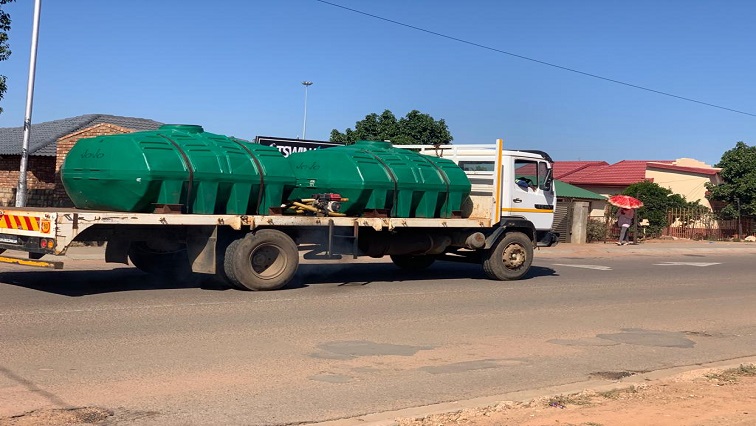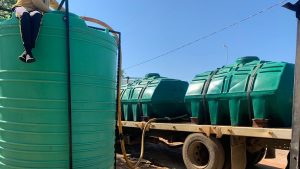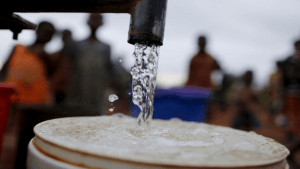Residents of Hammanskraal north of Tshwane, will have to wait a bit longer until they have clean running water despite promises by the Water and Sanitation Department that it would provide interim relief at least by March this year. This followed the death of scores of residents during a cholera outbreak in the area in May last year.
Part of the temporary relief was the installation of a water treatment plant at the nearby Klipdrift Water Treatment Works which would produce 40 mega litres of clean water a day.
Constance Ndlovu and her family were among the many people who contracted cholera. She spent more than two weeks in hospital.
During that time, she lost her husband and daughter to cholera. The 63-year-old who was fighting for her life in hospital and could not bury her loved ones.
She is now single-handedly raising four grandchildren. Almost a year since the death of her family members, water in Hammanskraal raises her anxiety.
“What scares me with this water is that I was also hospitalised. It was the three of us in the house who were sick, the fourth one was my son. We almost all died. Whenever I see this water, I get scared. I’m reminded of the two people who left me and were breadwinners.”
Effect on businesses
The cholera outbreak also affected businesses. A woman who sells filtered water has been running at a loss as she now buys water from tankers instead of purifying water from her tap.
She says it is sad that many have accepted this dire situation.
“If you want clean water in Hammanskraal, you need to buy but not everyone has money. If you’re a family of six, the cheapest water goes for R1 a litre, so you can imagine, if you’re a family of six, how many litres you consume daily, remember it is recommended that each person drinks 2 litres. We’ve been waiting for years now.”
Commitment to fix problem
In June last year, the City of Tshwane Mayor and the Water and Sanitation Minister committed to fixing the problem. This would be addressed by a temporary potable water package which was to have brought clean water to residents by last month.
Civic organisation, SANCO has expressed disappointment at the delay. The organisation’s Jeffrey Nytahikazi says water tankers are also not delivering timeously.
“As we speak now, we are still waiting but there’s no change, the water remains like that. They said we’d have a temporary solution to make sure we have clean water, unfortunately, there are no changes. They provided us with water trucks and tankers, but they don’t even service them. We’re still complaining as residents, that water is not clean but it’s better than tap water.”
Delays
Fixing the heavily contaminated Rooiwaal Water Treatment Plant will take at least 3 years and will cost R4 billion. Despite setting aside R450 million for the next three years, the Tshwane Metro does not have the funds.
Deputy Director-General in the Water and Sanitation Department, Dr Risimiti Mathye, says the delays are due to tendering challenges.
“The commitment is at least somewhere by August/ September at least the first 10 mega litres should be on the ground. So, the delay was based on the fact that the responsive tenderness did not meet the requirement and the implementing agent, Magalies was forced to go back to tender to re-advertise the tender.”
Mathye has assured residents that the department is trying hard to fix the problem while the city works on a permanent solution.
“Through the Minister’s intervention there is progress because even the inclusion of the package plant was an accelerated intervention, while we are waiting for the City of Tshwane to augment and upgrade refurbishment of the Themba Water Treatment works as well as Rooiwaal Wastewater which feeds the system into Themba Water Treatment Works, we need an urgent intervention. And we had to find a budget for it. It was not in our annual plan, but we had to find money for it to be funded. What we can assure residents is at least there is a plan.”
The now despondent residents who have accepted their water situation as the norm will wait a further five months to see whether this time around, the government delivers on their basic human right.






